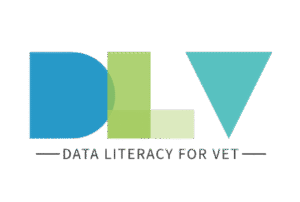Creating a safe and inclusive school environment is essential for fostering student well-being and preventing bullying. The Erasmus training course “Building Inclusive Communities: Strategies for Promoting Well-being and Preventing Bullying in Schools” is a targeted 20-hour program designed specifically for educators. Spanning five intensive days, this course aims to equip teachers with the tools, knowledge, and strategies necessary to cultivate a positive school culture where every student feels valued and respected.
Objectives
- Understanding Inclusion: Develop a comprehensive understanding of what it means to build an inclusive community within the school setting.
- Promoting Well-being: Learn techniques and practices to enhance the overall well-being of students, creating a supportive and nurturing educational environment.
- Preventing Bullying: Identify the signs of bullying and implement effective strategies to prevent and address bullying behaviors.
- Building Positive Relationships: Foster strong, positive relationships among students, staff, and the wider school community.
- Sustainable Practices: Develop and implement sustainable practices that ensure long-term success in promoting inclusivity and preventing bullying.
Module 1: Understanding Bullying
- Definition and types of bullying: verbal, physical, relational, cyberbullying.
- Causes and consequences of bullying: impact on students, the school, and the community.
- Risk and protective factors: identifying warning signs and promoting student well-being.
Module 2: Creating a Positive School Climate
- Promoting respect, empathy, and inclusion: activities and strategies for building positive relationships among students.
- Developing social-emotional skills: emotion management, effective communication, conflict resolution.
- Engaging students in bullying prevention: creating support groups, awareness initiatives, promoting positive leadership.
Module 3: Intervening in Cases of Bullying
- Recognizing and addressing bullying: intervention protocols, support for victims and bullies, parental involvement.
- Promoting peer mediation: training student mediators, conflict resolution techniques.
- Creating an effective reporting system: safe and confidential communication channels, handling reports.
Module 4: Building a Support Network
- Collaboration between teachers, school staff, parents, and the community: sharing information, strategies, and resources.
- Ongoing training: updating on the latest research and effective practices for bullying prevention.
- Evaluation and monitoring: measuring the effectiveness of interventions and adapting strategies based on results.
Learning outcomes
Knowledge:
- Understanding of bullying: Teachers will have a comprehensive understanding of the different types of bullying, their causes and consequences, and the factors that contribute to and protect against bullying behavior.
- School climate and well-being: They will gain knowledge about the importance of a positive school climate, how to foster respect and inclusivity, and strategies for promoting student well-being.
- Intervention and prevention strategies: Teachers will learn about evidence-based interventions for addressing bullying, including how to respond to incidents, support victims and bullies, and involve parents and the community.
Skills:
- Identifying and assessing bullying: Teachers will be able to recognize the signs of bullying, assess the severity of situations, and determine appropriate responses.
- Promoting social-emotional learning: They will develop skills in teaching social-emotional skills, such as empathy, communication, and conflict resolution, to students.
- Creating a safe and inclusive environment: Teachers will be equipped with strategies to foster a positive school climate, build relationships with students, and promote inclusivity and respect.
- Intervening effectively in bullying situations: They will learn how to respond to bullying incidents, support victims and bullies, and involve parents and other stakeholders.
Competencies:
- Leadership: Teachers will be able to take a leadership role in bullying prevention efforts, advocating for positive change and promoting a culture of kindness and respect in their schools.
- Collaboration: They will be able to collaborate effectively with colleagues, school staff, parents, and community members to create a comprehensive approach to bullying prevention.
- Critical thinking: Teachers will be able to analyze complex situations, evaluate the effectiveness of interventions, and adapt their strategies based on the specific needs of their school community.
- Cultural competence: They will be able to understand and address the
Upcoming sessions
Location: Rome
- September 2024: Week 4 (September 23 – 27)
- November 2024: Week 1 (October 28 – November 1)
- December 2024: Week 1 (December 2 – 6)
- February 2025: Week 1 (February 3 – 7)
- March 2025: Week 2 (March 10 – 14)
- April 2025: Week 2 (April 7 – 11)
- May 2025: Week 2 (May 12 – 16)
- June 2025: Week 3 (June 16 – 20)
- July 2025: Week 3 (July 14 – 18)
- September 2025: Week 4 (September 22 – 26)
- November 2025: Week 4 (November 24 – 28)





